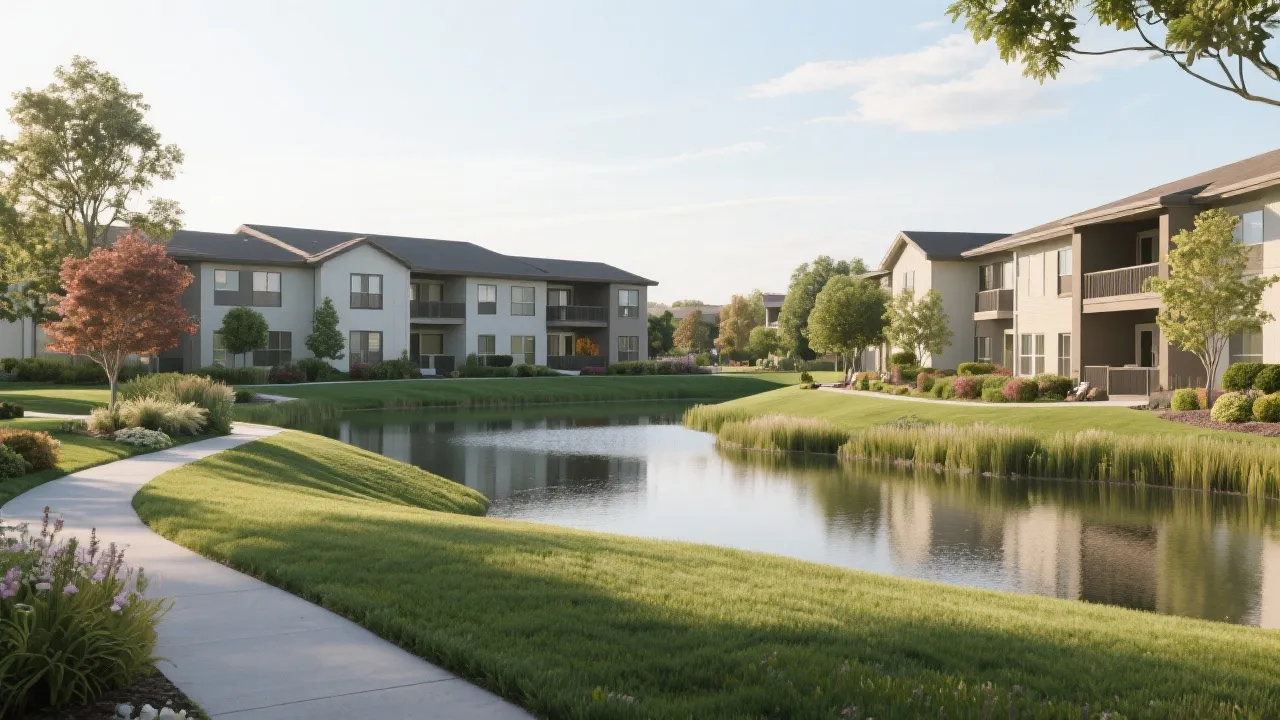This comprehensive guide explores various senior living options available nearby, emphasizing the importance of finding suitable accommodations to ensure quality life in one's later years. With increasing demand for specialized senior housing, it's crucial to understand the different offerings, from independent living to assisted care, across diverse regions.

In today's fast-paced world, the search for "Senior Living Options Near Me" has become a significant aspect of planning for the later stages of life. Whether you are considering this decision for yourself or a loved one, understanding the range of senior living options available nearby is crucial to ensuring a fulfilling lifestyle. From independent living communities to assisted living and memory care, these options cater to a wide array of needs and preferences. Understanding these differences can aid in making an informed choice that aligns with individual requirements and desires.
Senior living options vary widely, tailored to accommodate different levels of independence and care. The principal categories include:
Each type of senior living arrangement has unique benefits that cater to the varying needs of older adults. Understanding these benefits can assist potential residents and their families in making informed decisions. Below is a deeper exploration of how each option can enhance the quality of life for seniors:
Independent living is centered around preserving autonomy while providing conveniences that make daily life easier. Residents in these communities can enjoy:
Assisted living facilities serve seniors who require varying levels of assistance. Key advantages include:
Memory care facilities offer specific advantages to residents with cognitive impairments, such as:
CCRCs offer a unique advantage by catering to residents' needs throughout the aging process:
In English-speaking countries, several resources provide valuable information for those seeking senior living options. Among them are:
| Resource Name | Services Offered |
|---|---|
| AARP (American Association of Retired Persons) | Offers extensive resources including guides on choosing the right senior living options, along with advocacy on issues affecting seniors. |
| SeniorLiving.org | Provides a comprehensive directory and information on pricing and care types, empowering seniors to make informed choices about their living arrangements. |
| National Senior Citizens Law Center (NSCLC) | Advocates for seniors' rights and provides housing and care resources, focusing on legislation affecting the elderly population. |
| National Association of Senior Move Managers (NASMM) | Connects seniors with move managers to assist with transitions, ensuring moves are handled with sensitivity and care. |
Source: AARP, SeniorLiving.org, NSCLC, NASMM
The cost of senior living can vary significantly based on the location and type of facility. The financial investment is an essential consideration for families. Below is a comparative table of rental costs in different types of cities within English-speaking countries:
| Country | City Type | Price Range |
|---|---|---|
| United States | Large cities | $2,000 - $4,000 per month |
| United States | Smaller cities | $1,000 - $2,000 per month |
| United Kingdom | Large cities | £1,500 - £3,000 per month |
| United Kingdom | Smaller cities | £800 - £1,500 per month |
| Australia | Large cities | AUD 2,000 - AUD 3,500 per month |
| Australia | Smaller cities | AUD 1,200 - AUD 2,000 per month |
Understanding the cost is just one part of the equation; figuring out how to fund these expenses is crucial. Here are several common methods seniors and their families utilize:
Consider the level of care needed, location, amenities, community reputation, and cost. It’s also important to assess the social atmosphere and whether it feels like a good personal fit.
Researching online directories, consulting with senior living advisors, and visiting potential communities can yield affordable options. Local agencies and nonprofit organizations may also have resources to share.
Yes, organizations like the National Association of Senior Move Managers can assist with the transition. They help with sorting belongings, organizing the move, and may even provide emotional support during this significant change.
Families should discuss the preferences and needs of the senior, the level of support required, financial considerations, and the potential impact on family dynamics. Open communication can help mitigate stress during this often-difficult transition.
Finding budget-friendly senior living options involves a few critical steps:
Transitioning to a new living situation can bring about different feelings and experiences for seniors and their families. Here are some strategies to ease the transition:
Sometimes enlisting professional help is the best approach when facing a complex transition. Senior move managers and relocation specialists are trained in the specific needs of older adults, ensuring the moving process is handled with care and compassion. They can assist in:
The information provided in this article is sourced from various online resources, accurate as of October 2023. For the most updated details and further inquiries, please refer to the official websites linked above.
Choosing the right senior living option involves careful consideration of the individual’s lifestyle preferences, health requirements, and financial situation. By exploring the available options and utilizing resources, seniors and their families can make informed decisions that foster a fulfilling living situation. Ultimately, the goal is to find a community that provides not only the necessary care but also enhances the quality of life for older adults.
Explore the Tranquil Bliss of Idyllic Rural Retreats

Ultimate Countdown: The 20 Very Legendary Gaming Consoles Ever!

Understanding Halpin and its Influence

Affordable Full Mouth Dental Implants Near You

Discovering Springdale Estates

Illinois Dentatrust: Comprehensive Overview

Embark on Effortless Adventures: Unveiling the Top in Adventures Made Easy Outdoor Equipment

Unveiling Ossur Valves: Innovation in Prosthetics

Unlock the Full Potential of Your RAM 1500: Master the Art of Efficient Towing!
